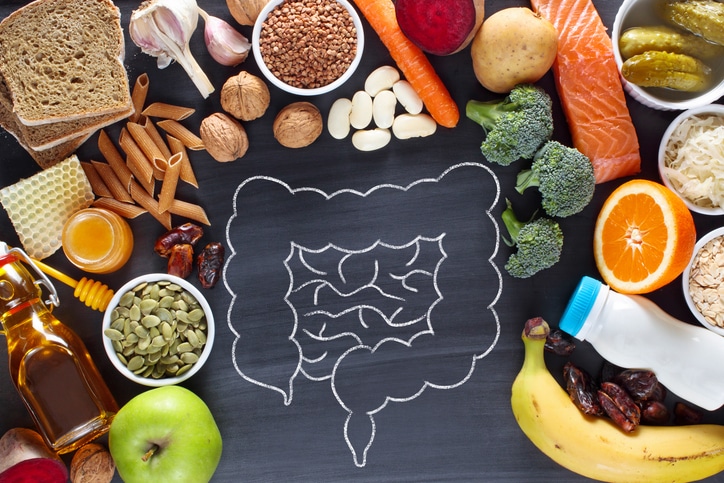If you’re ringing in 2026 with a “dry January,” your stomach may celebrate, too, because alcohol can impact gut health with temporary or long-lasting effects.
“Even moderate alcohol consumption can trigger certain conditions in susceptible individuals,” says Nezar Jrebi, MD, colorectal surgeon on the medical staff at Methodist Southlake Medical Center. “The risk and severity of gut-related health issues depend on how much and how often you drink.”
Alcohol alters the gut’s microbiome, the “good” bacteria that play a vital role in overall health by supporting the immune system and aiding in digestion.
When alcohol passes through the digestive tract, it can reduce microbial diversity, enhance inflammation, increase intestinal permeability (also known as “leaky gut” syndrome), and trigger bacterial overgrowth in the small intestine, Dr. Jrebi explains.
“Overall, alcohol changes the microbiome, promoting an inflammatory intestinal environment with consequences for both the metabolism and the immune system,” he says.

Binge drinking can cause more than a hangover; it can wreak havoc on your digestive system.
COMMON DISEASES
The five most common gut-related health issues caused by alcohol consumption are gastritis, gastroesophageal reflux disease (GERD), pancreatitis, alcoholic liver disease (ALD), and bacterial overgrowth in the small intestine.
1. Gastritis: Alcohol damages the protective barrier in the stomach and intestines. When this mucosal barrier deteriorates, it can lead to ulcers and gastritis, the inflammation of the stomach lining. A single episode of binge drinking can cause acute gastritis and disrupt gut barrier function, Dr. Jrebi warns. Other issues related to stomach inflammation include dyspepsia, nausea, and upper abdominal pain.
2. GERD: Drinking alcohol relaxes the lower esophageal sphincter, the valve that prevents acid and other stomach contents from coming back up into the esophagus. This, in turn, causes acid reflux and eventually could lead to gastroesophageal reflux disease.
 Alcohol can set off a inflammatory chain reaction that causes the pancreas to digest itself.
Alcohol can set off a inflammatory chain reaction that causes the pancreas to digest itself.
3. Pancreatitis: The pancreas produces digestive enzymes and hormones like insulin. When alcohol breaks down in the body, ethanol and its byproducts increase the production of toxic free radicals, Dr. Jrebi notes. This chain reaction activates pancreatic enzymes before they get to the intestines and causes the pancreas to essentially digest itself. Acute pancreatitis can result in upper abdominal pain, nausea, and vomiting; long-term issues include pain, weight loss, and digestive problems. “Both acute and chronic inflammation of the pancreas are strongly associated with heavy alcohol use,” Dr. Jrebi says.
4. Liver disease: Moderate to heavy drinking over the long term can lead to conditions like alcoholic liver disease, Dr. Jrebi cautions. ALD encompasses several health issues, such as excessive fat accumulation on the liver (steatosis), alcoholic hepatitis, and scarring of the liver (cirrhosis), as well as hypertension and bleeding in the digestive tract.
5. Gut dysbiosis and leaky gut: When the bacteria that make up the microbiome are out of balance, it’s called dysbiosis, a condition that can be caused by an infection, taking antibiotics, or overindulging in alcohol. This so-called “leaky gut” can allow undigested food and other toxins to permeate the intestinal lining and pass into the bloodstream, “which further promotes systemic inflammation and metabolic dysfunction,” Dr. Jrebi says.

Eating healthy can help reverse the digestive damage caused by drinking alcohol.
HEALING THE GUT
Now for the good news: The digestive damage caused by alcohol consumption doesn’t have to be permanent. Promoting gut health involves dietary changes we’ve all probably heard before.
- Eating a plant-based, high-fiber diet encourages microbial diversity and gut healing. Dr. Jrebi recommends avoiding processed foods, excessive fats, and sugars — all of which can worsen inflammation.
- Taking probiotics and prebiotics can provide microbial support, Dr. Jrebi advises. The Lactobacillus Bifidobacterium strains — found in yogurt and fermented vegetables — are proven to restore gut flora and reduce inflammation.
- Drinking plenty of water and electrolytes can help restore gut barrier function, particularly in cases of diarrhea or malabsorption.
Trust your gut to advanced GI care at Methodist by finding a digestive health specialist near you. Visit MethodistHealthSystem.org
Other medical therapies that can promote gut health include pancreatic enzyme replacement, liver function monitoring, stress management, and sleep science. Consult with a doctor to decide which treatment might work for you.
The first step, though, is abstaining from alcohol or, at the very least, cutting back.
“This is the most crucial step to allow mucosal recovery, restore liver function, and rebalance the microbiota,” Dr. Jrebi says.






